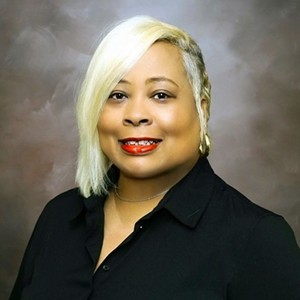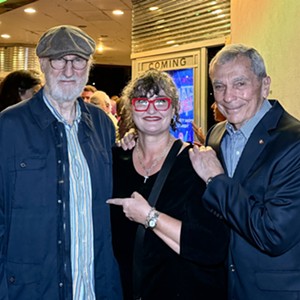Fahrenheit fired up
Editor,
Regarding Robin Wright Gunn’s column “Reading Large,” about the Big Read and Fahrenheit 451:
“When the war’s over, maybe we can be of some use in the world.”
After reading your article I was skimming the novel looking for something to argue against your “promoting the reading of only one book” quote. I was looking more for the men at the end of the novel who internalize the books as symbolism for the multitude of literature that we all must share to make a true library of intellectualism and all that, but I stopped at the quote I opened up with.
You seem, like many who juxtapose classic sci-fi with present society, to be saying that Bradbury’s theme still rings true. And so much for “Banned Books” carts at the Barnes and Nobel. We all read for a secret obsession -- like criminalized cigarettes.
What I’m getting at here is the very important seed that ANY organization -- regardless of its affiliations, ulterior motives, profit -- tries to sew in the mind of young readers. What better choice for a novel than one that says “don’t read books?”
I’m a Comp/Lit teacher at Johnson High School, and I’ve seen the Summer Reading List they give out to students. It is full of novels. Each one to be read. But the spark of reading for pleasure is hard to flint if it is for some educational magistrate.
What got you into reading? Wasn’t it some English teacher who said, “I think you’d like The Catcher in the Rye? Or a single mother who slips a copy of Of Mice and Men into your Easter basket? No? Well, I was lucky.
But the point is that ONE BOOK can create a passion for reading (a Georgia Performance Standard that seems to be lacking from the larger-scope NCTE Language Arts Standards).
With literacy a hard pill for many of our kids, it would seem that any attempt to promote books is a good thing. Give me a list of your top then favorite novels. Hundred? Thousand? We needn’t force an acceptable cultural capital on these young readers. We must simply go down the list until one connects.
The other accolade of public reading events choosing one book is that it places importance on a singular theme. Not just the theme in the novel, but the idea that socialization can be surrounded around this ancient art. To put importance on the fact that reading communities exist and that students can belong to them without having to read Nabokov or the entire canon.
I’m shuffling through this little Del Rey edition some more, looking for words I might not be able to say here. I’m on Spring Break, and my mind is more in a sleeper mode. But there’s a nice little afterword in here from Mr. Bradbury, himself. He’s talking about this phenomenon that you and so many others catch themselves in: of comparing what was then to what is happening now:
“So much for pasts. What about Fahrenheit 451 in this day and age? Have I changed my mind about much that it said to me, when I was a younger writer? Only if by change you mean has my love of libraries widened and deepened, to which the answer is a yes that ricochets off the stacks and dust talcum of the librarian’s cheek.”
Maybe Fahrenheit won’t encourage someone to read more. Neither will a standard. Or me, as a teacher, for that matter.
But you can not deny the importance. Or the factual evidence, that ONE BOOK has certainly changed many. Besides, those who dwell in the literary circles might feel the pangs of technology and apathy in our youth, but we are important. Maybe after the war.
Steven Knight
Language Arts Teacher
Sol C. Johnson High School
MLK’s many lessons
Editor,
Forty years ago Martin Luther King Jr. was murdered. I was only months old when it occurred, but I’ve learned much about racism during these forty years.
My first exposure to racism was as a child and it came from the people closest to me. While my parents didn’t speak against black people, I had relatives who saw blacks as something less than human. As I grew older, I crossed paths with blacks who hated me simply because I was white.
I learned there are basically two types of people who have tried to instill their racist views in me: first, those who loved me, and second, those who hated me. It was a powerful combination.
Fortunately, I have also seen many people, black and white, who’ve resisted racial prejudice. Unfortunately, we must remain forever diligent. More than any terrorist threat, the fear and hatred that dwells in the human heart are the greatest enemies to us as a people and a republic.
MLK once wrote, “One day we shall win freedom, but not only for ourselves. We shall so appeal to your heart and conscience that we shall win you in the process and our victory will be a double victory.”
The man is gone, but the dream lives on.
David Seckinger




















